LAKELAND : A tiny insect that may have caught a ride to Central Florida from Texas is killing thousands of palm trees in the area.
A Phoenix palm tree planted along the side of Memorial Boulevard across from Lakeland Auto Mall in west Lakeland shows signs of planthopper infestation Wednesday.
MICHAEL WILSON : THE LEDGER A disease carried in the vomit of planthopper insects is what kills the palms. So far, what's called Texas Phoenix Palm Decline has impacted about 20 percent of the 7,826 palms owned by the city of Lakeland. The city's palms are worth about $7 million.
The planthopper, about the size of the head of a pin, first pierces a leaf on a palm and then vomits, spreading the disease. Enzymes in the vomit breakdown the cells in the leaf so the insect can suck them up for nutrition.
The palm decline is caused by a phytoplasma, a small bacteria.
Some of the affected palms can be seen at Joker Marchant Stadium and on Memorial Boulevard. There are several species of Phoenix palms, including the Sylvester palm, the edible date palm and the Canary Island date palm.
The disease has also started to kill the sabal palm, the Florida state tree.
Charlie Reynolds, a gardening columnist for The Ledger, said it's a frightening disease that could �damage the environment.
Sabal and Phoenix palms are used in landscaping at many Florida businesses, from Disney World to malls, he said.
"If we lost sabals, it would really screw up Florida's environment," Reynolds said. "A lot of creatures depend on the sabal."
EXPENSIVE TREATMENT
Brian Dick, assistant superintendent of parks for the city, said the palms can be treated with an antibiotic called Tree Saver.
But it's not a cure.
"Once a palm gets it, there is no recovery," Dick said.
He recently briefed city commissioners on the plight of palm trees and plants in the city. In addition to Texas Phoenix Palm Decline, an insect called the Asian cycad scale has killed king sago palms, and the chilli thrip infected roses and plumbagoes.
Also, an inch-long giant palm weevil has attacked the tall Washingtonia palms in Lakeland.
But it's the Texas Phoenix Palm Decline that has experts worried the most.
Dick said hundreds of Phoenix palms have been impacted by the disease.
Some of the 4,000 affected sabal palms will die because it is too costly and time consuming to treat them.
It costs $4 for the antibiotic to treat a tree, on top of $10 for the labor, Dick said, and a tree must be treated three times a year. The antibiotic used on the palms is oxytetracycline, a drug used to treat infections in humans. It can be found at www.palmtreesaver.com.
IDENTIFYING THE CULPRIT
What's unclear is the type of planthopper that is destroying the palms.
"We've got researchers working on it," said Monica Elliott, a professor of plant pathology at University of Florida's Fort Lauderdale Research and Education Center.
Elliott said researchers do DNA testing on planthoppers to try to match the insect with the bacteria in the palm. She said there are three suspected planthoppers out of about 20 varieties.
The disease first kills the lower 25 percent of the palm. Leaves become discolored, quickly turning varying shades of reddish brown to dark brown or gray. Then the spear leaf at the top of the palm dies, killing the whole tree.
It takes three to six months for the tree to die if it is untreated.
The planthopper has spread to Sarasota, Pinellas, DeSoto, Manatee and Polk counties, she said. It made it to Lakeland at least two years ago.
Lakeland is about the furthest east the insect has traveled in Florida, she said.
The disease started in Mediterranean Europe, Reynolds said.
Against the advice of experts, palms were imported into McAllen, Texas, in the late 1970s. It wasn't until 2005 that Elliott said the insect somehow made it to Florida.
"We don't know how it got to Florida," Elliott said. "It could have hitched a ride on a ship."
[ John Chambliss can be reached at john.chambliss@theledger.com or 863-802-7588. ]
Planthoppers Carry Disease Affecting Lakeland TreesBy JOHN CHAMBLISS
Provided by University of Florida A disease carried in the vomit of planthopper insects, like the one above, can kill palm trees. The planthopper ...
August 29, 2011 8:11 AM
use only.
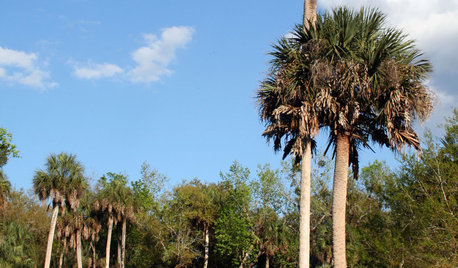





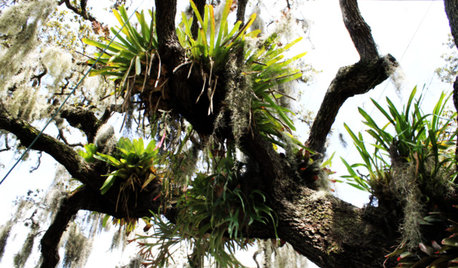

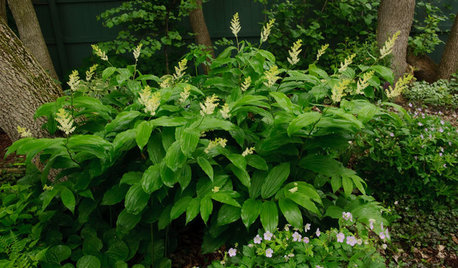




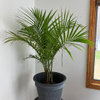
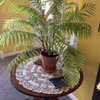
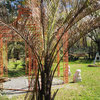
tropicalzone7
brooklyngregOriginal Author
Related Discussions
I'm killing my Brugmansia
Q
Florida ban
Q
How fast do plants grow in Florida? Take a look.
Q
Pony tail palm & Majesty Palm
Q
chachacharlie
mksmth zone 7a Tulsa Oklahoma
tropicalzone7
brooklyngregOriginal Author
kinzyjr {Lakeland, FL - USDA: 9b, Record: 20F}